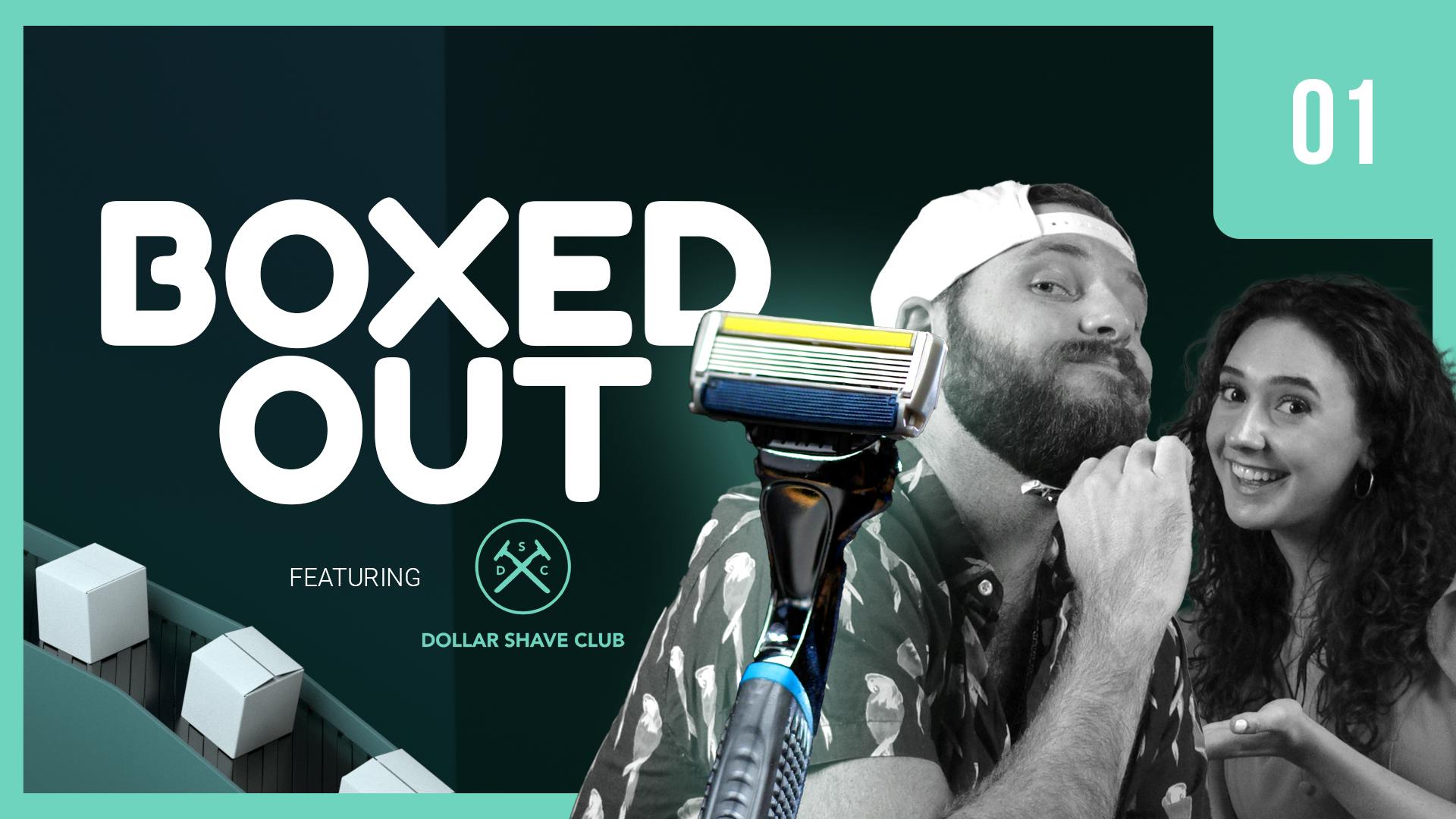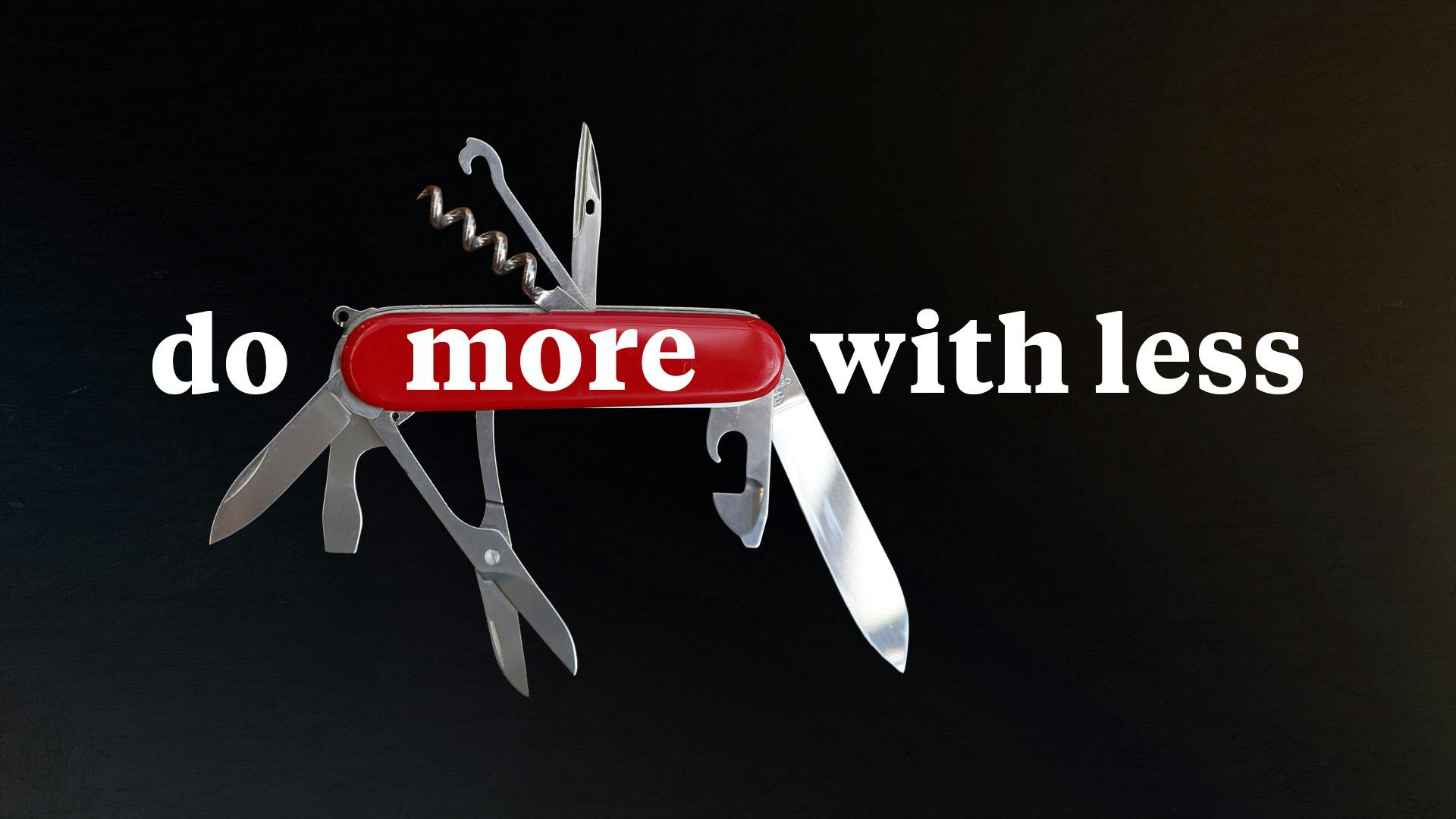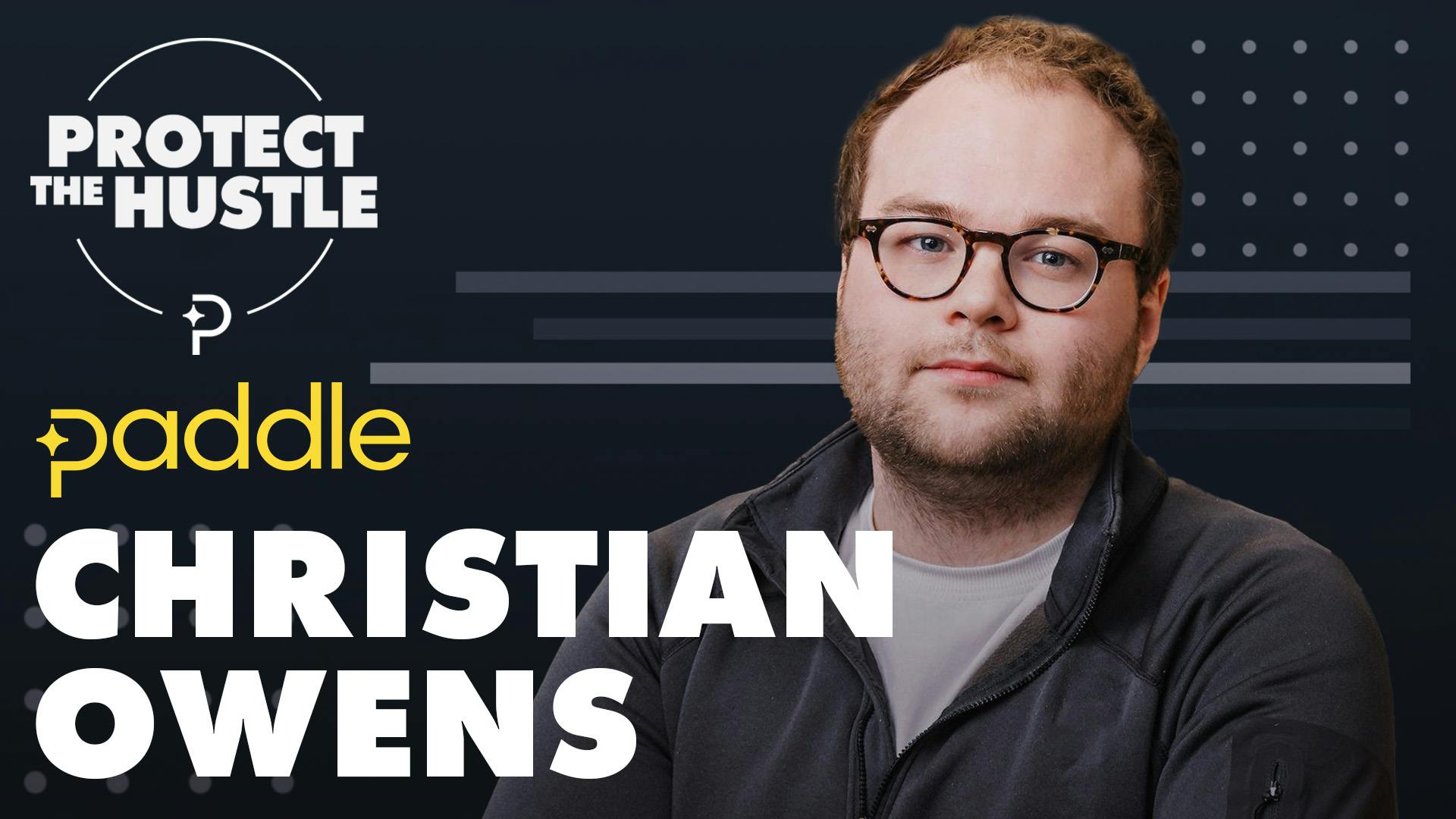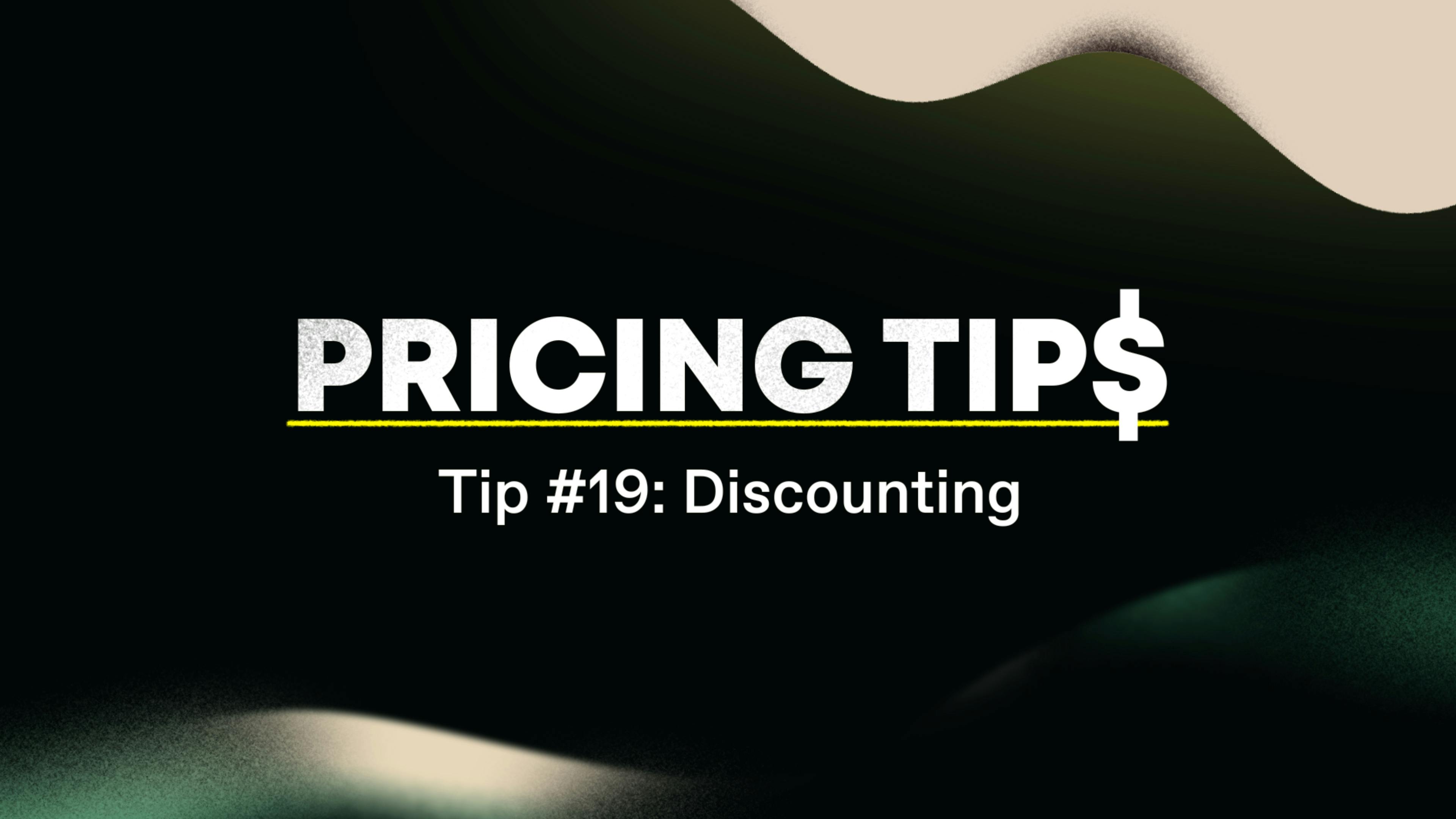
Quip—Good or Bad Retention Hygiene?
This episode might reference ProfitWell and ProfitWell Recur, which following the acquisition by Paddle is now Paddle Studios. Some information may be out of date.
Please message us at studios@paddle.com if you have any questions or comments!
Today we're talking about Quip, a company that's taken on the multi-billion dollar dental hygiene market with phenomenal branding and a product that could be in an art gallery. We're going to learn how Quip used integrity in their mission and great design to their advantage, and then we're going to jump into what they're doing great, and not so great, with their subscription retention strategy, wrapping this all up into a nice case study for improvements for your own DTC brand.
Key takeaways:
- Credit card failure process
Quip needs top-to-bottom overhaul of their credit card failure process as soon as possible. They're losing a ton of money by doing nothing.
They need four to five plain text emails that go out in an intelligent drip based on the customer's behavior after they realize the card's declined.
They need SMS messages in this flow.
They need to allow users to update their payment information without logging in.
- Donations
Quip should do something involving a donation of sorts. Dental health is an area where there's people in different parts of the world without access to it. Donations would be a great tactic for Quip and the world—a win-win.
Donations as a part of subscriptions increase retention by 10-20%.
Donations demonstrate a charitable side, and it's great for retention.
- Term optimization
Quip needs to go much deeper on term optimization. Longer-term subscriptions retain customers at a 15-30% percent higher rate than monthly subscriptions. This is a missed opportunity for such a lifestyle intensive product like dental care.
Offer longer-term plans in exchange for a discount.
Ask customers not only in the checkout flow, but also after the purchase has been made.
Remind customers to upgrade to a longer-term plan with a plain text email and an offer with a one-click upgrade.
Quip
Toothbrushes date back to 3300 BC and the most primitive tooth brushing tools from ancient Egypt were made by fraying the ends of a twig. In China, chewing sticks were made from aromatic tree twigs. Ancient India used Neem twigs. Then in 1938, Dupont introduced nylon bristles and the modern toothbrush was born, including Squibb’s Broxodent in 1960, the first American made electric toothbrush. Cleaning our teeth is nothing new and it shouldn’t be because poor dental hygiene leads to heart problems, decay, and plenty of bad maladies and with so many options out there, there’s little excuse.
The next iteration of the teeth washing revolution started in 2015 with Quip, a dental hygiene brand founded by Simon Enever and Bill May to go back to the basics. Enever’’s dentist told him to avoid all the bells and whistles of toothbrushes and focus on finding a simple vibrating toothbrush with a two-minute timer. Turns out amongst all the gimmicky toothbrushes this didn’t really exist, so Enever and May decided to will this toothbrush into existence through Quip, which is a subscription that sends you brush refills for a modern time-based toothbrush along with plenty of education. They also have a mobile app that actually makes sense for the device and almost gamifies the habit of proper dental health.
Quip's success
Quip’s carving out their portion of the multi-billion dollar dental hygiene market by focusing on two key success factors:
First, Quip is turning toothbrushing back into a lifestyle. With their floss, brush, and toothpaste options, as well as plenty of learning materials, Quip is re-educating the market as to what’s important with dental hygiene. You may think there’s not much to re-learn, but there are still millions of people who don’t brush their teeth or floss, mainly because they don’t know what to buy in the sea of different options. Quip’s making the practice approachable, simple, and beautiful, building people’s habits back up through a laser focus on making the dental experience convenient and affordable—all in a one-stop shop.
This focus on lifestyle has also pushed Quip to innovate. You can link your dentist to your Quip account to personalize the experience even further, but also ensure you’re getting complete dental care. Their new mobile app actually connects to their toothbrushes and records how consistent you are at brushing your teeth. You actually earn rewards for consistency, which obviously improves your help, but also improves Quip’s bottom line.
Oh and did we mention these products are just beautiful? They’re sleek and well designed with just the right amount of minimalism that makes you feel like you’re brushing your teeth with a Renoir or at least Renoir’s brush. All of their products were clearly designed with rethinking the experience and adjusting the woes of predecessors.
The beauty and focus Quip puts into their products has pushed Quip to a value close to $170 million with over 15 thousand dental professionals signed up through Quip, and their products keeping five million mouths clean. All of whom have provided them with thousands of positive reviews.
Quip's retention review
Not everything's amazing about Quip's strategy, though there is a lot we can learn from them. Their retention does need work. Most brands though, don't focus on this aspect of their business enough.
Why is retention important?
You spend half of your budget and time acquiring customers, but to be successful, you need to keep them. The beauty of the subscription model is that the relationship with the customer is baked directly into how you make money. If that customer is happy, they'll keep buying from you in the long term. If they're upset or not seeing the value, they'll cancel quickly.
Plus, money talks here. Those subscription ecommerce companies using the tactics we're going to talk about have 2x the customer lifetime value (LTV), 2x the average order value, and 3x higher growth rates, because they're not worried about plugging a leaky retention bucket.
To highlight the importance here, let's look through Quip's retention strategy and break down what they're doing well, and not so well, so you can learn for your own DTC business.
Retention has three parts:
- Active churn, which are customers who are actively choosing to cancel your product.
- Expansion revenue, which are your existing customers that buy more product.
- Delinquent (or involuntary) churn, which are customers who's credit card or payment has failed, which sadly is one of the largest single buckets of where you're losing money.
Quip's active churn:
When we look at Quip's active churn, there are so many reasons why a customer may cancel. We want to make sure Quip is not only setting up their customers for long-term retention in the initial purchasing process, but that they're also collecting information on why someone's cancelling, if they so happen to, in order to get a clean cycle of retention improvement.
The good:
Quip actually did a pretty good job with this side of retention. One of the big pieces here is subtle, but I think super important, is that the design of their products, their site, and their copy is all getting me into a feeling of reinventing my morning routine with Quip at the center of my dental care. Then when you look at these starter sets it's almost pushing me down the path to be a heavily retained customer, because I don't have to think much about what I need—they just send me the whole pack.
Another good idea that I'm fascinated to see the outcome of, is Quip's smart toothbrushes, which link up to an app, and based on usage you end up getting a refill credit. This is absolutely brilliant and how internet-connected DTC devices should be used—to basically encourage usage, and ultimately, better retention. A lot of brands could learn from what quip is doing here and although they may not have daily usage like Quip, there's different types of implementations here that could be useful.
Another area they did fairly well was their cancellation flow. It was definitely very well designed and better than most, in terms of pushing customers to reconsider that cancellation. Some of their copy, and even the UX behavior, wasn't ideal. The copy was a little matter of fact where I'd like to see it a little more market-y to keep me around. The UX also should have put the options to pause, skip, etc., more front and center rather than being so low in the hierarchy. And its software—make it pop up and be a bit bolder rather than keeping the cancel button so large.
Cancellation flows and offboarding are crucial. We've found that those companies that properly offer up salvage offers tend to save 15-30% more customers who go through a cancellation flow. This is based on a study we completed on just over one thousand DTC subscription companies.
The bad:
One thing that I wish they added here was a family pack. We've seen this in the vitamins and wellness space. We want to get the whole family or maybe even you and your partner on the path to all buying into using Quip vs. one of you in the house using something off the shelf and another using Quip.
Quip's expansion revenue prowess:
Expansion revenue is crucial, because your existing customers are more than willing to buy 3x more from you—you just have to make sure to ask. Plus, those customers who have at least one add-on or additional purchase tend to have 18-54% higher lifetime value, meaning they're paying you more over the life of the subscription, but they're also sticking around longer, because they're more engrained within your product.
The good:
Quip does a pretty decent job here, as well. As soon as I jump into the check-out process I have an offer for a travel case, and when I'm in the account there's also the option for travel size toothpaste and such.
The bad:
I'd like to see more around potentially upselling me to different options. We never really received upsell emails. At the very least, and we touched on this a little bit before, give me the option to add my loved ones or my friends. I do like the shipping options they propose. I'm sure there's some extra margin here, but ultimately they have just some amazingly designed products, so I'd like them to sell me more of them.
Quip's credit card failure flow:
Now let's talk about the sexiest topic in the world—credit card failures. We know you don't wake up sweating in the middle of the night thinking about credit cards—that's our job—but here's why we obsess over things like this: just under 40% of the customers that leave you are leaving you because of failed payments. To get these folks back, we want to make sure Manscaped is treating these folks like a marketing channel, sending them messages before the point of failures, all the way to after the point of failure through email and text messages.
Needs an overhaul, asap:
This is where I was pretty disappointed in Quip. We received one email that just told us that our subscription was paused, and that if we updated the payment information they'd try it out in one to five days. The issue here is that most people don't know that their credit card has failed and there's 130-plus different reasons why they fail, many of which have nothing to do with the customer, so we typically find the first few emails you send a customer about this issue should be conciliatory—something along the lines of "Hey we're not sure what happened, but your credit card didn't work. Mind updating it?" After three to four emails you then tell them that their subscription has been paused or cancelled after the attempts.
The attempts let people have a warning and make them feel less bad. Also, Quip should be able to retry the credit card immediately. The one to five day delay seems odd and not ideal. Again though, only one email, which isn't amazing. One note on this though, is that plain text emails from an individual person tend to do much much better.
One other piece I noticed is that the link in the email went to your account which made you sign in. This isn't a good practice, as you want to reduce friction as much as possible. They should set up a form that doesn't require logging in to update payment information. Based on this and some assumptions about the size of their business, they're likely losing hundreds of thousands of dollars in lifetime value.
Overall:
If we take a step back though, I think Quip has done a fairly good job with their retention with some notable exceptions, so there's a bit of work to be done. They just need to take the talent they've applied to the brand, product, and experience and apply it more to the retention side of their business.
Retention revamp
Let's revamp. First though, why do we feel we have any authority to even talk about this? Roughly 20% of the entire subscription market is using ProfitWell, so we're sitting on more data than anyone else. Simply put, we have the data to know what works and what doesn't, and we care more about this problem than anyone else out there.
Let's walk through three big things we'd change immediately about Quip's retention strategy, so we can all learn for our own brands.
3 changes needed now:
- Credit card failure process
Quip needs a top-to-bottom overhaul of their credit card failures as soon as possible. They're losing a lot of money by basically doing nothing, and it's insane they haven't realized this yet. They need four to five plain text emails that go out in an intelligent drip based on user behavior and data after they realize the card's declined. They need SMS messages, they need to recognize and message expired credit cards, and they need to allow users to update their payment information without logging in. It's hard to get deep on any one thing because they need basically everything. - Donations
I'd love to see Quip do something involving a donation of sorts. Dental health is one of those areas where there's certainly people in different parts of the world that don't have access to it, and while this would definitely show Quip's charitable side, it's also great for retention.We continually find that donations as a part of subscriptions increase retention by 10-20%. This based on a study we completed on just over thirty thousand DTC subscription customers. Even if it's nominal, people feel more invested in the subscription and want to make sure they're still helping the world. It's a great tactic that's also great for the world. - Term optimization
We'd change up Quip's term optimization. Right now we're not seeing a customer able to pre-pay for an extended subscription in exchange for some cash off. This is a missed opportunity for such a lifestyle intensive product like dental care. Give me the opportunity to buy an annual supply or even six months for a bit of a discount, or even an offer like the travel-size toothpaste.
The big thing to keep in mind here is that those longer-term subscriptions retain customers at a 15-30% higher rate than monthly subscriptions, as we found in doing a study on over two thousand DTC subscription companies. So even an incremental amount of customers on these plans will pay dividends.
This is an intensely beneficial optimization for DTC brands that many aren't taking advantage of. It not only gets me more invested in the product, but also gets me to buy in to longer retention. Quip's fighting the corner store when they run out of toothpaste, so get me bought in. Keep in mind that you can ask customers, not only in the check-out flow, but also after the purchase has been made. New users may want to try the product out before committing to something longer, so reminding them through a plain text email with an offer and then a one-click upgrade to a longer-term plan helps boost overall lifetime value considerably. We didn't receive any emails like this post purchase. They could even put this on the order confirmation page, which is an often overlooked piece of real estate for offers.
We do have a lot of hope for Quip though, because these changes aren't major but they'll have a big impact. I'm most excited that they can actually gain market share and retention by applying the great copywriting and marketing to this part of their flows. They clearly take optimization seriously. It's a great company and we know they can succeed in boosting that recovery rate substantially.
Who's up next?
Next week we're going in a completely different direction and we're going to be learning from Black Rifle Coffee, a brand that's embedded a point of view and values right into a seemingly commoditized product. We'll see what they're doing well and not so well so make sure you subscribe to boxed out and tell your friends so we can get this knowledge into the hands of as many people as possible.






